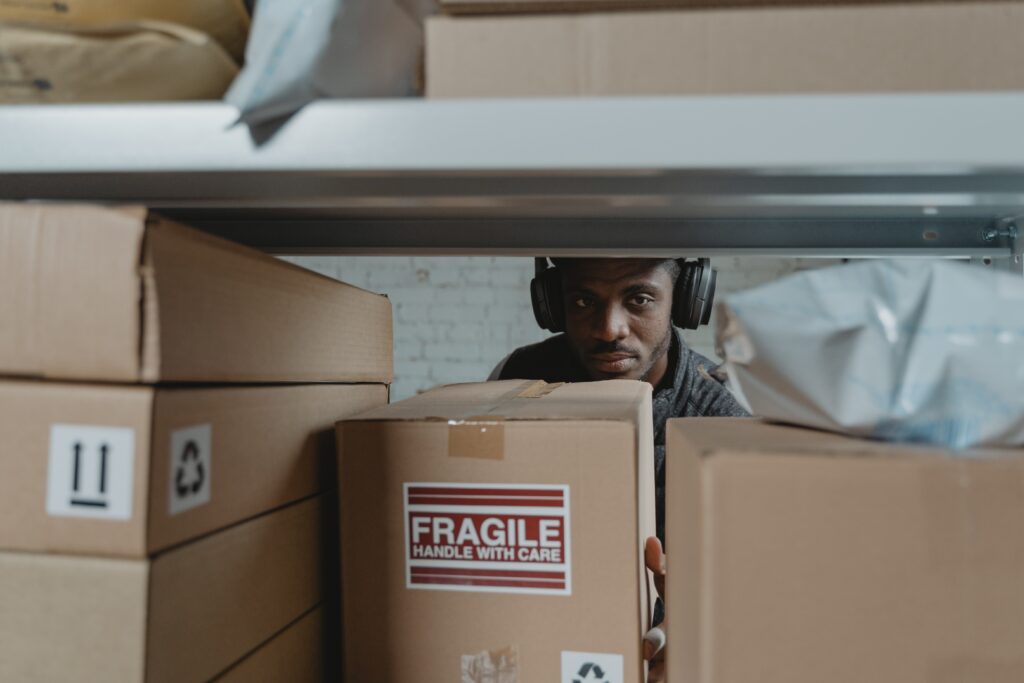
In today’s fast-paced digital world, online shopping has become a convenient and popular way to purchase goods. However, with the rise of online shopping, there has also been an increase in online shipping scams and other fraudulent activities. One such scam that has gained notoriety is the BHL Parcel Shipping Scam, which has left many unsuspecting victims out of pocket. In this article, we will delve into the history and reported incidents of the BHL Parcel Shipping Scam, and discuss how you can avoid falling victim to this shipping-related fraudulent scheme.
The BHL Parcel Shipping Scam has been making waves in recent years, with numerous reports of unsuspecting individuals falling prey to this deceptive scheme. The scam operates by targeting online sellers who are selling high-value items such as electronics, designer clothing, and luxury goods. The scammers pose as potential buyers and express an interest in purchasing the items. They typically use fake names and email addresses to communicate with the sellers, making it difficult to trace their identity.
Once the scammers have gained the trust of the seller, they request that the purchased items be shipped to a specific address, claiming it is a forwarding service provided by BHL Parcel Shipping. The scammers often promise to reimburse the seller for the shipping costs along with the purchase price of the items. However, once the items are shipped and received by the scammers, they disappear without making any payment, leaving the seller at a significant loss.
Reports of the BHL Parcel Shipping Scam have been widespread, with victims from various countries around the world. In some cases, victims have lost thousands of dollars worth of goods and shipping costs, resulting in financial and emotional distress. The scam has been orchestrated through various online platforms, including online marketplaces, social media platforms, and classified advertisement websites.
One of the reasons why the BHL Parcel Shipping Scam has been successful is due to the sophisticated tactics employed by the scammers. They often create elaborate websites that mimic the appearance of legitimate shipping companies, complete with logos, contact information, and customer reviews. These websites can be convincing and may even include fake tracking numbers and shipping labels, further adding to the illusion of legitimacy.
To avoid falling victim to the BHL Parcel Shipping Scam, it’s important to exercise caution and be vigilant when selling items online. Here are some tips to help you stay safe:
- Verify the buyer’s identity: When communicating with potential buyers, take the time to verify their identity. Ask for their full name, contact information, and do a quick online search to check if they have a legitimate online presence. Be cautious of buyers who use fake names or email addresses, as this could be a red flag.
- Beware of forwarding service requests: Be cautious of requests from buyers to ship items to a specific forwarding service address, especially if they claim it is provided by BHL Parcel Shipping or any other shipping company. Legitimate buyers would typically have items shipped to their own address or a verified shipping address.
- Check the legitimacy of shipping companies: Research the legitimacy of shipping companies before using their services. Verify their contact information, read customer reviews, and check if they are registered with relevant authorities. Be wary of websites that lack contact information, have poor customer reviews, or do not have a verified business address.
- Avoid sharing sensitive information: Do not share sensitive information such as your bank account details, social security number, or credit card information with buyers unless it is necessary for the transaction. Scammers may use this information to commit identity theft or other fraudulent activities.
- Use secure payment methods: When receiving payment for items sold online, use secure payment methods such as PayPal, which offer buyer protection. Avoid accepting payment through wire transfers, money orders, or other unsecured methods, as these can be difficult to trace and recover in case of fraud.
- Double-check shipping labels and tracking numbers: Before shipping any items, verify the accuracy of shipping labels and tracking numbers. Scammers may provide fake labels or tracking numbers to deceive sellers into thinking that the items have been shipped when, in reality, they have not.
- Be cautious of rushed or urgent requests: Scammers often use urgency as a tactic to pressure sellers into shipping items quickly without thorough verification. Be cautious of buyers who rush the process or create a sense of urgency, as this could be a red flag for potential scam.
- Trust your instincts: If something feels too good to be true or seems suspicious, trust your instincts and proceed with caution. If a buyer’s request or behavior seems unusual or raises any doubts, take the time to investigate further or seek advice from trusted sources.
In case you fall victim to the BHL Parcel Shipping Scam or any other online scam, it’s important to report the incident to the relevant authorities such as the police, your local consumer protection agency, and the online platform where the scam occurred. Prompt reporting can help prevent further incidents and may increase the chances of recovering your losses.
In conclusion, the BHL Parcel Shipping Scam is a deceptive scheme that targets online sellers by posing as fake buyers and requesting items to be shipped to a forwarding service address. To avoid falling victim to this fraudulent scheme, it’s crucial to exercise caution, verify the buyer’s identity, check the legitimacy of shipping companies, avoid sharing sensitive information, use secure payment methods, double-check shipping labels and tracking numbers, be cautious of rushed requests, and trust your instincts. Stay vigilant and report any suspicious activities to the relevant authorities to protect yourself and others from online scams. Remember, prevention is always better than cure when it comes to online fraud, so be diligent and take steps to safeguard your online transactions.
